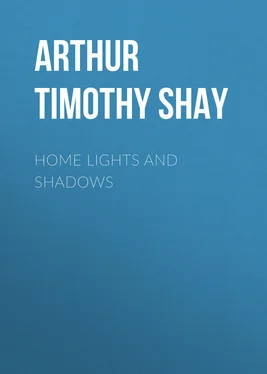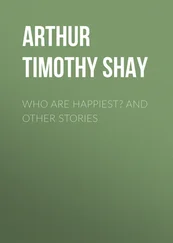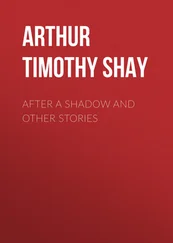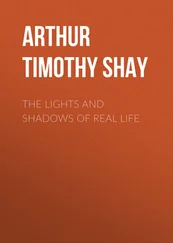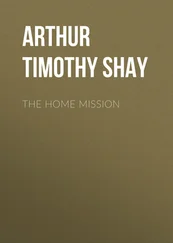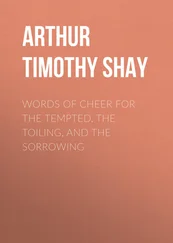Timothy Arthur - Home Lights and Shadows
Здесь есть возможность читать онлайн «Timothy Arthur - Home Lights and Shadows» — ознакомительный отрывок электронной книги совершенно бесплатно, а после прочтения отрывка купить полную версию. В некоторых случаях можно слушать аудио, скачать через торрент в формате fb2 и присутствует краткое содержание. Жанр: foreign_sf, literature_19, foreign_antique, foreign_prose, на английском языке. Описание произведения, (предисловие) а так же отзывы посетителей доступны на портале библиотеки ЛибКат.
- Название:Home Lights and Shadows
- Автор:
- Жанр:
- Год:неизвестен
- ISBN:нет данных
- Рейтинг книги:4 / 5. Голосов: 1
-
Избранное:Добавить в избранное
- Отзывы:
-
Ваша оценка:
- 80
- 1
- 2
- 3
- 4
- 5
Home Lights and Shadows: краткое содержание, описание и аннотация
Предлагаем к чтению аннотацию, описание, краткое содержание или предисловие (зависит от того, что написал сам автор книги «Home Lights and Shadows»). Если вы не нашли необходимую информацию о книге — напишите в комментариях, мы постараемся отыскать её.
Home Lights and Shadows — читать онлайн ознакомительный отрывок
Ниже представлен текст книги, разбитый по страницам. Система сохранения места последней прочитанной страницы, позволяет с удобством читать онлайн бесплатно книгу «Home Lights and Shadows», без необходимости каждый раз заново искать на чём Вы остановились. Поставьте закладку, и сможете в любой момент перейти на страницу, на которой закончили чтение.
Интервал:
Закладка:
And, as she said this, she arose, the silent and rebuked Mrs. Andrews, whose own picture had been drawn, following her down to the gay drawing rooms.
Many a purer heart than that of the humbled Pharisee beat there beneath the bosoms of happy maidens even though their feet were rising and falling in time to witching melodies.
ROMANCE AND REALITY
"I MET with a most splendid girl last evening," remarked to his friend a young man, whose fine, intellectual forehead, and clear bright eye, gave indications of more than ordinary mental endowments.
"Who is she?" was the friend's brief question.
"Her name is Adelaide Merton. Have you ever seen her?"
"No, but I have often heard of the young lady."
"As a girl of more than ordinary intelligence?"
"O yes. Don't you remember the beautiful little gems of poetry that used to appear in the Gazette, under the signature of Adelaide?"
"Very well. Some of them were exquisite, and all indicative of a fine mind. Was she their author?"
"So I have been told."
"I can very readily believe it; for never have I met with a woman who possessed such a brilliant intellect. Her power of expression is almost unbounded. Her sentences are perfect pictures of the scenes she describes. If she speaks of a landscape, not one of its most minute features is lost, nor one of the accessories to its perfection as a whole overlooked. And so of every thing else, in the higher regions of the intellect, or in the lower forms of nature. For my own part, I was lost in admiration of her qualities. She will yet shine in the world."
The young man who thus expressed himself in regard to Adelaide Merton, was named Charles Fenwick. He possessed a brilliant mind, which had been well stored. But his views of life were altogether perverted and erroneous, and his ends deeply tinctured with the love of distinction, for its own sake. A few tolerably successful literary efforts, had been met by injudicious over praise, leading him to the vain conclusion that his abilities were of so high a character, that no field of action was for him a worthy one that had any thing to do with what he was pleased to term the ordinary grovelling pursuits of life. Of course, all mere mechanical operations were despised, and as a natural consequence, the men who were engaged in them. So with merchandizing, and also with the various branches of productive enterprise. They were mere ministers of the base physical wants of our nature. His mind took in higher aims than these!
His father was a merchant in moderate circumstances, engaged in a calling which was of course despised by the son, notwithstanding he was indebted to his father's constant devotion to that calling for his education, and all the means of comfort and supposed distinction that he enjoyed. The first intention of the elder Mr. Fenwick had been to qualify his son, thoroughly, for the calling of a merchant, that he might enter into business with him and receive the benefits of his experience and facilities in trade. But about the age of seventeen, while yet at college, young Fenwick made the unfortunate discovery that he could produce a species of composition which he called poetry. His efforts were praised—and this induced him to go on; until he learned the art of tolerably smooth versification. This would all have been well enough had he not imagined himself to be, in consequence, of vastly increased importance. Stimulated by this idea, he prosecuted his collegiate studies with renewed diligence, storing a strong and comprehensive mind with facts and principles in science and philosophy, that would have given him, in after life, no ordinary power of usefulness as a literary and professional man, had not his selfish ends paralysed and perverted the natural energies of a good intellect.
The father's intention of making him a merchant was, of course, opposed by the son, who chose one of the learned profession as more honorable—not more useful; a profession that would give him distinction—not enable him to fill his right place in society. In this he was gratified. At the time of his introduction to the reader, he was known as a young physician without a patient. He had graduated, but had not yet seen any occasion for taking an office, as his father's purse supplied all his wants. His pursuits were mainly literary—consisting of essays and reviews for some of the periodicals intermixed with a liberal seasoning of pretty fair rhymes which rose occasionally to the dignity of poetry—or, as he supposed, to the lofty strains of a Milton or a Dante. Occasionally a lecture before some literary association brought his name into the newspapers in connection with remarks that kindled his vanity into a flame. Debating clubs afforded another field for display, and he made liberal use of the facility. So much for Charles Fenwick.
Of Adelaide Merton, we may remark, that she was just the kind of a woman to captivate a young man of Fenwick's character. She was showy in her style of conversation, but exceedingly superficial. Her reading consisted principally of poetry and the popular light literature of the day, with a smattering of history. She could repeat, in quite an attractive style, many fine passages from Homer, Virgil, Milton, Shakspeare, Pope, Byron, Shelley, Coleridge, and a host of lesser lights in the poetic hemisphere—and could quote from and criticise the philosophy and style of Bulwer with the most edifying self-satisfaction imaginable—not to enumerate her many other remarkable characteristics.
A second visit to Adelaide confirmed the first favorable impression made upon the mind of Fenwick. At the third visit he was half in love with her, and she more than half in love with him. A fourth interview completed the work on both sides. At the fifth, the following conversation terminated the pleasant intercourse of the evening. They were seated on a sofa, and had been talking of poetry, and birds, and flowers, green fields, and smiling landscapes, and a dozen other things not necessary to be repeated at present. A pause of some moments finally succeeded, and each seemed deeply absorbed in thought.
"Adelaide," at length the young man said in a low, musical tone, full of richness and pathos—"Do you not feel, sometimes, when your mind rises into the region of pure thoughts, and ranges free among the beautiful and glorious images that then come and go like angel visitants, a sense of loneliness, because another cannot share what brings to you such exquisite delight?"
"Yes—often and often," replied the maiden lifting her eyes to those of Fenwick, and gazing at him with a tender expression.
"And yet few there are, Adelaide, few indeed who could share such elevating pleasures."
"Few, indeed," was the response.
"Pardon me, for saying," resumed the young man, "that to you I have been indebted for such added delights. Rarely, indeed, have I been able to find, especially among your gentler sex, one who could rise with me into the refining, elevating, exquisite pleasures of the imagination. But you have seemed fully to appreciate my sentiments, and fully to sympathize with them."
To this Adelaide held down her head for a moment or two, the position causing the blood to deepen in her cheeks and forehead. Then looking up with an expression of lofty poetic feeling she said—
"And, until I met you, Mr. Fenwick, I must be frank in saying, that I have known no one, whose current of thought and feeling—no one whose love of the beautiful in the ideal or natural—has seemed so perfect a reflection of my own."
To this followed another pause, longer and more thoughtful than the first. It was at length broken by Fenwick, who said, in a voice that trembled perceptibly.
"I have an inward consciousness, that sprung into activity when the first low murmur of your voice fell upon my ear, that you were to me a kindred spirit. Since that moment, this consciousness has grown daily more and more distinct, and now I feel impelled, by a movement which I cannot resist, to declare its existence. First pardon this freedom, Adelaide, and then say if you understand and appreciate what I have uttered in all frankness and sincerity?"
Читать дальшеИнтервал:
Закладка:
Похожие книги на «Home Lights and Shadows»
Представляем Вашему вниманию похожие книги на «Home Lights and Shadows» списком для выбора. Мы отобрали схожую по названию и смыслу литературу в надежде предоставить читателям больше вариантов отыскать новые, интересные, ещё непрочитанные произведения.
Обсуждение, отзывы о книге «Home Lights and Shadows» и просто собственные мнения читателей. Оставьте ваши комментарии, напишите, что Вы думаете о произведении, его смысле или главных героях. Укажите что конкретно понравилось, а что нет, и почему Вы так считаете.
